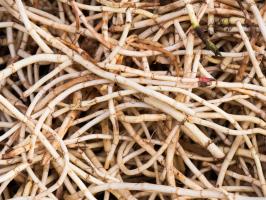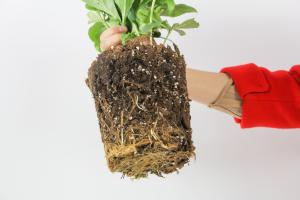Introduction
Pets can bring us a lot of joy and companionship, but they can also get themselves into trouble by eating things they shouldn't. Caution must be taken to ensure that our furry friends are safe from harmful substances that may be lurking in our homes, including our houseplants. In this article, we will explore what happens if a cat eats a pot plant.
Common Pot Plants that Can be Toxic to Cats
Certain pot plants can have a toxic effect on cats if ingested. Some common pot plants that can be toxic to cats include lilies, ivy, aloe vera and snake plants. Symptoms of ingestion may include vomiting, diarrhea, difficulty breathing, lethargy and even organ failure. While some pot plants may not cause immediate harm, repeated exposure or ingestion of larger quantities can lead to long-term health problems.
Steps to Take if Your Cat Eats a Pot Plant
If you suspect that your cat has eaten a pot plant, it is important to seek veterinary attention immediately. Your veterinarian may recommend various treatments depending on the type of plant ingested and the severity of the symptoms. Treatment may include supportive care such as fluid therapy, vomiting-inducing medication, and frequent monitoring of vital signs such as heart rate and blood pressure. In some cases, hospitalization may be necessary.
Preventing Your Cat from Eating Pot Plants
Prevention is always the best course of action when it comes to keeping your cat safe from toxic substances. To prevent your cat from eating pot plants, consider the following steps:
Keep toxic plants out of reach of your cat.
Choose cat-safe plants to decorate your home.
Supervise your cat when they are outside to prevent them from eating plants in the yard.
Use barriers such as fencing or mesh to enclose plants that can harm your cat.
Conclusion
In conclusion, it is important for cat owners to be aware of the potential dangers of pot plants and take necessary precautions to prevent their cats from eating them. While some plants may not be immediately harmful, repeated exposure or ingestion can lead to long-term health problems. Always seek prompt veterinary attention if your cat has ingested a toxic plant. By being vigilant and proactive, you can ensure the health and safety of your beloved feline companion.

 how many times do yo...
how many times do yo... how many planted tre...
how many planted tre... how many pine trees ...
how many pine trees ... how many pecan trees...
how many pecan trees... how many plants comp...
how many plants comp... how many plants can ...
how many plants can ... how many plants and ...
how many plants and ... how many pepper plan...
how many pepper plan...

































